The GB News presenter says ordination in the Church of England was “snatched away” from him because of his conservative views
Calvin Robinson will tell me exactly where he stands on every political and religious hot potato you could name. But he won’t tell me his age.
When it comes to his strongly held opinions on vaccine passports and church decline, this church leader is an open book. So why won’t he reveal his birth year? “I think I’ve gotten in the habit of holding back a little bit of private information just because everything about me is already out there, it feels like people own your life,” he tells me when we speak over Zoom. “Plus, it’s enigmatic”, he adds dryly.
His desire for an element of privacy makes sense. It wasn’t long ago that Robinson had a handful of online followers. Today 200,000 people read his tweets and the former primary school teacher is now a presenter on national television.
Robinson grew up in a nominally Anglican family. He has always struggled with the concept of organised religion – “which is probably why I got kicked out of one,” he says.
Robinson is referring to his tussle with the Church of England, who recommended him for ordination, paid for his training and then at the last minute “snatched away” the opportunity, citing Robinson’s views on race.
That experience led him to conclude that there is no place for conservatives in the Church of England. He has since moved to the GAFCON-affiliated Free Church of England and is currently minister-in-charge at Christ Church, Harlesdon.
Robinson doesn’t like to be labelled “controversial”, but how else should one describe his objections to the Covid vaccines, or his recent assertion that being called a conspiracy theorist is “a badge of honour”?
He’s increasingly known as a ‘talking head’ on conservative issues, and someone who is willing to voice opinions that others might be tempted to keep quiet about.
But Robinson says he’s a minister first and foremost. “The way I see it, the platform I’ve been given is a gift from God to be used for the greater glory of God. And it’s my job to try to proclaim the truth and to spread the gospel.”
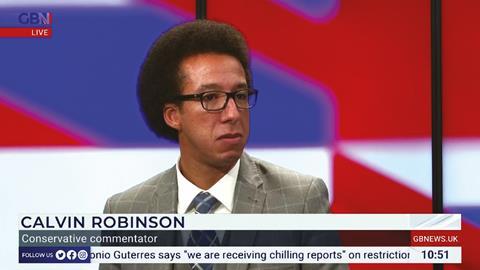
You’ve just started presenting a show on GB News called Common Sense Crusade. Why did you choose that name?
We’re in a spiritual war at the moment. People are sick and tired of being lied to and manipulated. And they’re ready for some good old-fashioned common sense. Ready for a return to British values, to Christian values and ready to proclaim the truth without being persecuted.
Can you give me any examples of what you’re talking about?
Up until two years ago, no one would have dreamed of a Western country taking away the civil liberties of its inhabitants. And even now I can hear people screaming: “Yes, but Covid was an emergency!”
We all appreciate that it was a situation we’d never been in before. However, that doesn’t change the fact that until that moment, we would never have dreamed of telling an Englishman that his home is no longer his castle, and he’s not allowed to invite his own family into his house, or he’s only allowed to leave his house once a day…all of those things would have been bonkers before the pandemic.
Now we take it for granted that the government has a right to tell us what to do. It is tyranny – and that’s not a hyperbolic word. It’s quite literally taking away someone’s liberties.
And then of course, there’s the whole trans area. We all want to be compassionate, loving and kind. However, we’re being told to deny things that we know to be true.
We’re being taught to deny biology, deny science, but also to deny our faith by saying that it is possible for a person to be born in the wrong body, and to be told that a man can become a woman. I think all of this is heavily contested, heavily debatable, and therefore we need some common sense.
I’m a Christian, I’m English, I’m British. They’re the only identities I care about
You were working as a teacher in a primary school. What made you want to become a priest?
I’d always worked in Church of England schools, but Christ was very often missing from them, to be honest. They always had Christian values and a Christian mission, so to speak, but it was often a second thought.
And I thought: If we’re producing young people with great results, but not necessarily producing great people, that is an issue.
I need to be in a place where I can work on the spiritual side of things. Through that discernment process, in talking to my priest, my bishop and my archdeacon, I eventually got recommended for training in the Church of England.
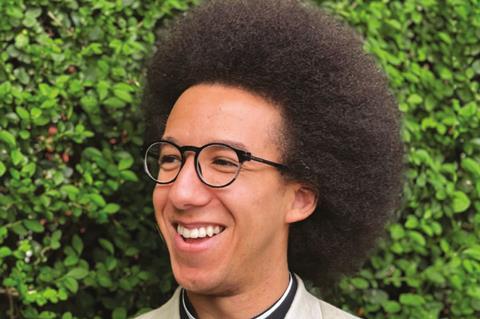
You went ahead with residential training, but it didn’t work out. What went wrong?
Yeah, it’s quite sad, really. I mean, I’m over it now, because I’m where I’m supposed to be.
At the end of my training, when I was supposed to be going into my parish as a curate, it was snatched away. I’d been promised a parish but the paperwork never came through.
I was chasing it to find out what was going on. The bishops made it known that they weren’t going to ordain me in London. I asked why. They said: “Because it’d be too turbulent, and we’d have people complaining about your views.”
I asked to see the complaints, because I want to try and do better. I’m not here to be controversial. I think it’s a shame that my views are seen as controversial. And the bishops said no.
I sent a subject access request because, under the law, they have to show me. They sent me all of the information they have on me – all of the emails and text messages.
There was less than a handful of complaints, and they were all from priests who were living with their gay partners. So in my eyes, they’re in apostasy already, and they clearly didn’t like that I was saying we should be more orthodox and biblically rooted.
Those complaints were spurious and nothing came of them. The big issue was loads of emails about me between the bishops. They’d been talking about me behind my back.
The Church had recommended me, and spent £20,000-30,000 of parishioners’ money on sending me to Oxford for the best training in the country. But they’d already decided among themselves that they didn’t want to ordain me because of my views.
There were very explicit comments, like: “Calvin does not feel that this country is institutionally racist. We should keep an eye on his ordination process.”
I don’t believe the country is institutionally racist. I believe the country has many racists in it who need to be held to personal account for their horrible ways. I’m mixed race and have experienced a lot of racism in my life.
So for a metropolitan, liberal elite – a white, middle-class bishop – to tell me I’m wrong about issues of racism is interesting. They say they want to take on board more ethnic minority voices, but they didn’t want to take my voice on board.
It was all a bit baffling. It seems there wasn’t really a place for conservatives in the Church of England. And it’s a great shame, because the Church’s liberal gatekeepers don’t represent the people in the pews.
You’ve since become ordained in the Free Church of England, and you call yourself an evangelical Catholic. What does that mean?
I appreciate both sides of that spectrum. Catholics are fantastic at administering and maintaining the importance of the sacraments, and evangelicals are great at emphasising the importance of the word of God and scriptural supremacy. Both of those need to come together.
The next census is expected to show that less than 50 per cent of the UK population identify as Christian, making Christianity a minority religion. How can we turn the tide?
I think it’s quite simple. We have to look at where the faith is a success, and look at where it’s a failure, and match the differences.
The success is in South America – in Latin countries – and on the African continent, because the faith is rooted in the Bible and in tradition.
It’s failing where people no longer think the Bible is the most important part of the faith. They think there are elements they can disregard because we’re more progressive now. Or they disregard tradition. They think we need to become more ‘relevant’ – I hate that word! Wherever we try to chase society we will flop.
Look at the places where they’re saying the Latin Mass. Young people are turning up in droves! The thing I cannot stand the most is patronising behaviour.
We say: “Young people can’t access the King James Bible because the language is too archaic,” or: “Young people don’t want smells and bells.” How do you know that? Have you asked young people? And if so, have you asked them all? Because they’re not all the same!
They’re a diverse bunch of people. Data shows that tradition and scripture are what people want, and they are what works. It’s why the Church has survived for 2,000 years.
Does it feel strange to be ministering the Eucharist at church one moment, and commentating on national TV the next?
No, not really. I’ve always thought of [myself] as bi-vocational. The way I see it, the platform I’ve been given is a gift from God to be used for the greater glory of God. And it’s my job to try to proclaim the truth and spread the gospel. I know people have different opinions on how well I do that, but that’s what I set out to do.
Closing the churches during the pandemic was demonic
A lot of church leaders have been willing to recommend the Covid vaccines to their congregations. Why do you disagree with that?
Because the Church is not a public service in that way.
I see this as an issue of faith. If we are saying we truly believe in a loving God, and we are under his protection, we should never close the doors to his house.
Closing churches was demonic. Masks are troubling, because people are saying you need something else to come into God’s house – you must be wearing a mask. And you aren’t allowed in cathedrals unless you have a vaccine and show proof of that.
So are you objecting to what became known as ‘vaccine passports’ - this idea that you had to show proof of your vaccine status in order to enter some public buildings? Or do you actually have a problem with the vaccine?
It’s the idea that people who haven’t taken the vaccine are somehow lepers. But, even if they were, Jesus would have been with the lepers – he wouldn’t have separated himself from them!
I don’t know why people are using the faith to moralise in favour of the vaccine. They’re saying they’re rooted in science but they’re not taking on board the fact that when these vaccines came out, we didn’t know how efficacious that were. We know now that they’re a lot less efficacious than we thought they were.
But we do know that generally speaking, all other things being equal, it’s much better to have a vaccine against Covid than not have it, don’t we?
I would not concede that point. Not at all.
So you don’t accept the scientific consensus…?
No, the scientific consensus is that if you’re a young male, you are more at risk of an adverse effect from the vaccine than you are from the virus. But this is my problem – the science isn’t static.
Things have changed from the beginning to now. The best possible thing you can have against the virus is immunity. And the best form of immunity is natural immunity. These are things that we knew in science and that we somehow have neglected or forgotten.
What’s your response to people who worry about Christians going on TV and espousing political views? Isn’t it better for us to stick to talking about the gospel rather than being dragged into divisive debates?
There are very few Christians on television, so if there’s an opportunity for a Christian to speak on TV, I think that’s a good thing. We should use the media to our advantage.
My views happen to be conservative, and that’s because I get them from scripture. I try to root my political views from my faith rather than the other way around. And I think most people should try to do that.
Do you agree GB News is a right wing/conservative news channel?
I would refute both of those. There’s always someone from the right and the left in every single conversation, which is something that we don’t see on the BBC, where they’ll outnumber Brexiters with Remainers.
Channel 4 and the BBC are very similar in their metropolitan liberal elite bias. It’s a Westminster bubble which doesn’t go into the heart of the country and meet normal folk any more.
In regards to me, I don’t really care what label people use. People often say right-wing, some people say far right, which is absolutely crazy. Anyone right of Marx is a far-right person these days.
I’m a Christian, I’m English, I’m British. They’re the only identities I care about.
You’ve said your calling is to “spread the gospel” in the media. But do you ever worry that you might alienate people who don’t share your politics? People might stop watching before you ever have an opportunity to talk about faith.
Yeah, of course it’s a concern. I see it across the board. When I see the Bishop of St Davids saying: “Never trust a Tory”, I think that’s problematic, because you’re saying you cannot trust more than half of your flock. So I’m always cautious of that.
But I think all of the episcopacy are lefty liberals. Therefore, there’s a massive amount of the flock that are feeling neglected. If I’m there offering a different perspective, it actually adds a bit of balance, so I don’t worry about it as much. But I still do keep it in my head.
To hear the full interview listen to Premier Christian Radio at 8pm on Saturday 12 November or download The Profile podcast













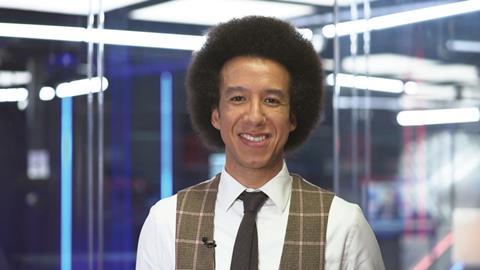

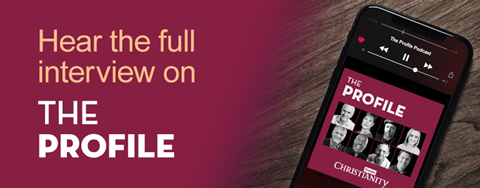


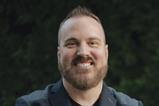





















3 Readers' comments